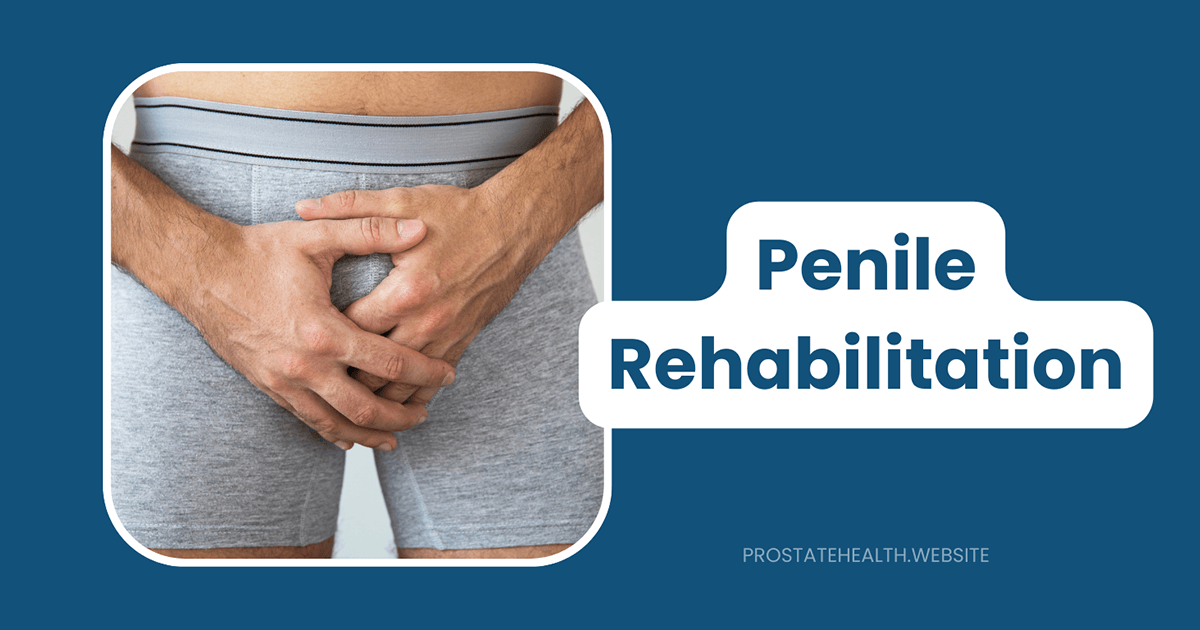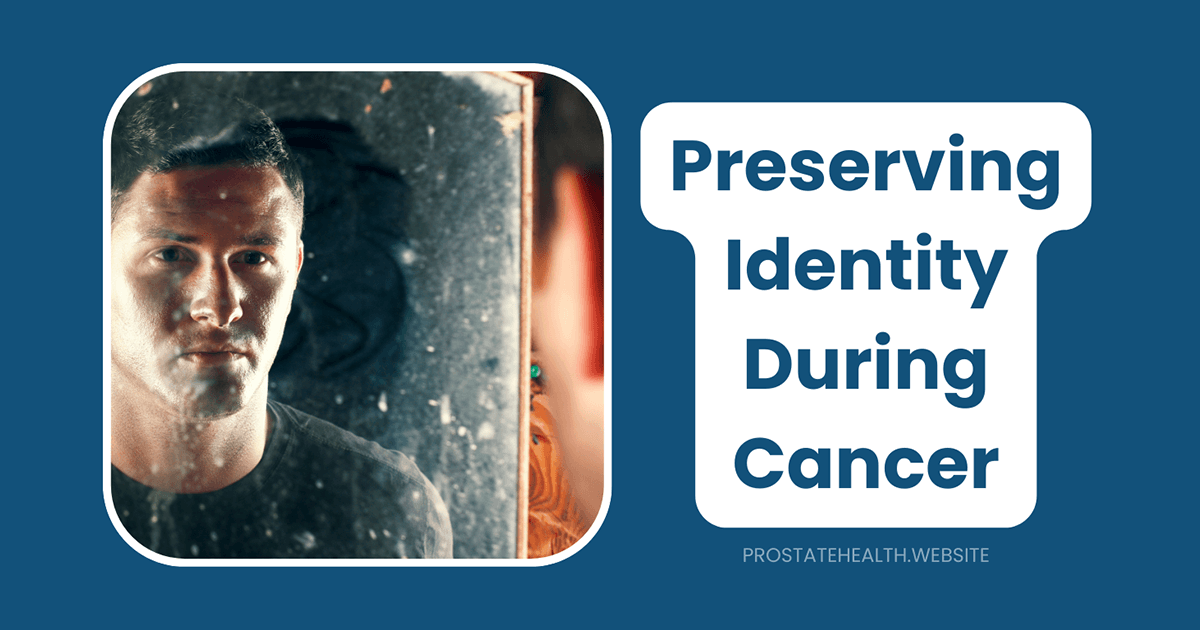Psychological Aspects of Sexual Recovery After Prostate Cancer

When David, 58, completed his prostate cancer treatment, his oncologist congratulated him on being cancer-free. “I should have felt only relief and gratitude,” he recalls. “Instead, I found myself struggling with feelings I couldn’t explain to anyone—grief, anxiety, and a profound sense of loss around my sexuality.”
David’s experience is far from unique. While the physical aspects of sexual dysfunction after prostate cancer treatment are well documented, the psychological journey is often less discussed but equally significant. This article explores the emotional landscape of sexual recovery after prostate cancer and offers insights for navigating this challenging terrain.
Understanding the Psychological Impact
The psychological impact of sexual changes after prostate cancer treatment can be profound and multifaceted. Research published in BMC Urology found that men commonly experience:
- Loss of masculine identity: Many men report feeling “less of a man” due to changes in sexual function.
- Grief and mourning: The loss of familiar sexual function often triggers a genuine grieving process.
- Anxiety and depression: Studies indicate that up to 37% of prostate cancer survivors experience psychological distress related to sexual dysfunction.
- Relationship concerns: Fear of disappointing partners or being unable to maintain intimate relationships.
- Body image issues: Changes in physical function can dramatically alter how men perceive themselves.
“What surprised me most was how deeply this affected my sense of self,” shares Michael, a 62-year-old prostate cancer survivor. “It wasn’t just about sex—it was about who I was as a person.”
The Connection Between Sexual Function and Mental Health
The relationship between sexual function and mental health is bidirectional. Sexual dysfunction can lead to psychological distress, while psychological issues can further impair sexual recovery.
According to a comprehensive review in the Journal of Sexual Medicine, this creates a potential cycle:
- Treatment causes physical sexual changes
- These changes lead to psychological distress
- Psychological distress further impairs sexual function
- Worsened sexual function increases distress
Breaking this cycle requires addressing both the physical and psychological aspects of recovery simultaneously.
Common Psychological Challenges
Identity and Masculinity
For many men, sexual function is deeply intertwined with their sense of masculinity and identity. As Dr. Andrew Roth, psychiatrist at Memorial Sloan Kettering Cancer Center, explains: “When sexual function changes, men often question fundamental aspects of their identity.”
This can manifest as:
- Questioning one’s value as a partner
- Feeling “broken” or “incomplete”
- Struggling with self-worth
- Avoiding social situations or new relationships
Grief and Loss
The emotional response to changes in sexual function often mirrors the classic stages of grief:
- Denial: “This is temporary; everything will go back to normal.”
- Anger: “Why is this happening to me? It’s not fair.”
- Bargaining: “If I try this treatment or approach, maybe things will be like before.”
- Depression: “I’ll never experience sexual pleasure again.”
- Acceptance: “My sexuality is different now, but I can still find intimacy and satisfaction.”
“Understanding that grief is a normal response helped me process my feelings,” says Robert, 65. “I needed to mourn what I’d lost before I could appreciate what I still had.”
Relationship Dynamics
Sexual changes rarely affect only the patient. Partners also experience significant adjustments, creating potential relationship strain.
Common relationship challenges include:
- Communication barriers: Difficulty discussing sexual changes openly
- Misinterpreted signals: Partners may withdraw physically to avoid “pressuring” each other
- Role adjustments: Changes in how couples express intimacy and affection
- Fear of abandonment: Concerns that partners may seek fulfillment elsewhere
“My wife and I were like awkward teenagers again,” recalls Thomas, 59. “We had to learn a whole new language for talking about intimacy.”
Anxiety and Performance Pressure
The psychological pressure to “perform” sexually can create a self-defeating cycle:
- Anxiety about sexual performance
- Physical tension that impedes sexual response
- Disappointing sexual experience
- Increased anxiety about future encounters
This “spectator syndrome”—where men become observers of their own performance rather than participants in the experience—can significantly hinder recovery.
Factors That Influence Psychological Adjustment
Research published in Frontiers in Psychology identifies several factors that influence how well men adjust psychologically to sexual changes:
Pre-Treatment Sexual Function and Attitudes
Men who had satisfying sexual relationships before treatment often experience more significant distress afterward. However, they may also be more motivated to explore solutions.
“I had a very active sex life before surgery,” says James, 54. “That made the changes harder to accept initially, but it also pushed me to work actively on recovery.”
Quality of Relationship
Men in supportive, communicative relationships typically adjust better to sexual changes. Partners who can adapt together and focus on broader aspects of intimacy often report greater satisfaction.
Age and Life Stage
Younger men (under 65) typically report more distress about sexual changes than older men. This may relate to different expectations and the greater likelihood of being in an active sexual relationship.
Treatment Type
Different treatments create different psychological challenges:
- Radical prostatectomy: Sudden change with potential for gradual improvement
- Radiation therapy: Gradual onset of symptoms that may worsen over time
- Hormone therapy: Additional body changes that can affect mood and self-image
Cultural and Personal Beliefs
Cultural backgrounds and personal beliefs about masculinity, sexuality, and health significantly impact psychological adjustment.
“In my community, men don’t talk about these things,” explains Carlos, 60. “That made it harder to seek support, but when I finally did, it was life-changing.”
Special Considerations for Diverse Populations
Sexual Minority Men
Gay, bisexual, and other men who have sex with men face unique challenges in sexual recovery after prostate cancer. Research published in 2023 found that:
- Sexual minority men are typically diagnosed with prostate cancer at a younger age (average 63.5 years vs. 67 years)
- They report higher rates of mental health concerns both before and after treatment
- Specific sexual practices may be more significantly impacted (e.g., receptive anal intercourse)
- They may face additional stigma when seeking support
“My doctor never asked about my sexual practices as a gay man,” reports Michael, 55. “I had to advocate for myself to get information relevant to my relationship.”
Cultural Considerations
Cultural backgrounds significantly influence how men process and respond to sexual changes:
- Some cultures place greater emphasis on male virility and sexual performance
- Religious beliefs may affect how couples adapt to sexual changes
- Communication styles about intimate topics vary across cultures
- Access to culturally competent care varies widely
Strategies for Psychological Recovery
Professional Support Options
Several types of professional support can help with psychological aspects of sexual recovery:
Psychotherapy
Individual therapy can help process grief, manage anxiety, and develop coping strategies. Approaches that have shown benefit include:
- Cognitive-behavioral therapy (CBT): Addressing negative thought patterns about sexuality and masculinity
- Acceptance and commitment therapy (ACT): Learning to accept changes while pursuing meaningful life goals
- Mindfulness-based approaches: Reducing anxiety and improving body awareness
Sex Therapy
Specialized sex therapists can offer:
- Specific techniques for adapting to sexual changes
- Communication strategies for couples
- Sensate focus exercises to reduce performance anxiety
- Guidance on expanding sexual repertoire beyond erection-dependent activities
“Working with a sex therapist helped us redefine what sex meant for us,” shares William, 63. “We discovered intimacy could take many forms.”
Couples Counseling
Relationship-focused therapy can:
- Improve communication about sensitive topics
- Help couples grieve together and support each other
- Develop new patterns of intimacy
- Address relationship issues that may have pre-dated cancer
Self-Help Strategies
Beyond professional help, several self-help approaches have proven beneficial:
Education and Information
Understanding what to expect can reduce anxiety. Resources include:
- Our guide to erectile dysfunction after prostate treatment
- Books like “Saving Your Sex Life: A Guide for Men with Prostate Cancer” by Dr. John Mulhall
- Intimacy without intercourse resources
Peer Support
Connecting with others who understand can be powerful:
- In-person or online support groups specifically for sexual recovery
- Us TOO International offers peer-to-peer support
- Partner-inclusive groups that address relationship aspects
“Hearing other men talk openly about what they were going through made me feel less alone,” says Robert. “Their strategies gave me hope and practical ideas.”
Mindfulness and Stress Reduction
Techniques that reduce anxiety can improve both psychological well-being and sexual response:
- Meditation and mindfulness practices
- Progressive muscle relaxation
- Guided imagery
- Yoga and gentle exercise
Expanding Definitions of Intimacy
Many men report that broadening their understanding of sexuality and intimacy was transformative:
- Focusing on sensual touch beyond genital contact
- Exploring new erogenous zones
- Using toys and aids as part of sexual play
- Prioritizing emotional connection during intimate moments
The Role of Partners in Psychological Recovery
Partners play a crucial role in psychological recovery, but they also face their own challenges. Research from the Sexual Medicine Society of North America found that partners often:
- Feel overlooked in discussions about sexual recovery
- Experience their own grief about sexual changes
- Worry about pressuring their partners
- Need support and information
Effective partner involvement includes:
Open Communication
Honest, compassionate communication forms the foundation of recovery:
- Regular check-ins about feelings and needs
- Using “I” statements to express emotions
- Active listening without judgment
- Acknowledging both partners’ experiences
Shared Problem-Solving
Approaching sexual recovery as a team effort:
- Researching options together
- Attending medical appointments as a couple when appropriate
- Making decisions collaboratively about treatments
- Experimenting with new approaches to intimacy together
Independent Support
Partners need their own support systems:
- Partner-specific support groups
- Individual counseling
- Self-care practices
- Education about what their loved one is experiencing
“My husband’s recovery became our project,” shares David’s wife, Sarah. “But I also needed space to process my own feelings with my therapist and friends who understood.”
When to Seek Professional Help
While some psychological distress during sexual recovery is normal, certain signs indicate a need for professional support:
- Persistent sadness or hopelessness lasting more than two weeks
- Anxiety that interferes with daily activities
- Relationship conflict that worsens over time
- Thoughts of self-harm or suicide
- Substance use to cope with distress
- Withdrawal from previously enjoyed activities
- Sleep disturbances that persist despite good sleep hygiene
“I thought I could handle it on my own,” admits Thomas. “Looking back, I wish I’d gotten help sooner. The right therapist made all the difference.”
The Journey Toward a New Normal
Sexual recovery after prostate cancer is rarely a return to exactly how things were before. Instead, it’s a journey toward a “new normal”—one that can still include pleasure, intimacy, and satisfaction.
As Dr. Anne Katz, a certified sexuality counselor, explains: “The goal isn’t to get back what was lost, but to discover what’s possible now and to find meaning and pleasure in that.”
Many men report that while this journey is challenging, it can lead to unexpected growth:
- Deeper emotional intimacy with partners
- More creative and varied approaches to sexual pleasure
- Greater appreciation for non-sexual forms of connection
- Improved communication skills that benefit all aspects of relationships
“I won’t say it was easy,” reflects David, whom we met at the beginning of this article. “There were dark days when I questioned everything. But three years later, my wife and I have a connection that’s deeper than before. We talk more openly, we’re more creative in our intimacy, and we don’t take our time together for granted.”
Resources for Support
Professional Resources
- American Association of Sexuality Educators, Counselors, and Therapists – Find certified sex therapists
- Psychology Today Therapist Directory – Search for therapists specializing in cancer and sexuality
- Cancer Support Community – Free counseling and support groups
Support Organizations
- ZERO – The End of Prostate Cancer – Comprehensive support services
- Us TOO International – Peer support network
- Malecare – Support for gay and bisexual men with prostate cancer
Conclusion
The psychological aspects of sexual recovery after prostate cancer are complex and deeply personal. By acknowledging these challenges, seeking appropriate support, and maintaining open communication, men and their partners can navigate this difficult terrain and discover new pathways to intimacy and satisfaction.
Remember that this journey takes time, and progress may not be linear. Be patient with yourself and your partner, celebrate small victories, and remain open to discovering new dimensions of connection and pleasure.
As one survivor put it: “Cancer changed my sexuality, but it didn’t end it. In some ways, it forced me to become a better lover, a better communicator, and a more present partner. That’s not what I expected, but it’s the silver lining I’ve found.”






